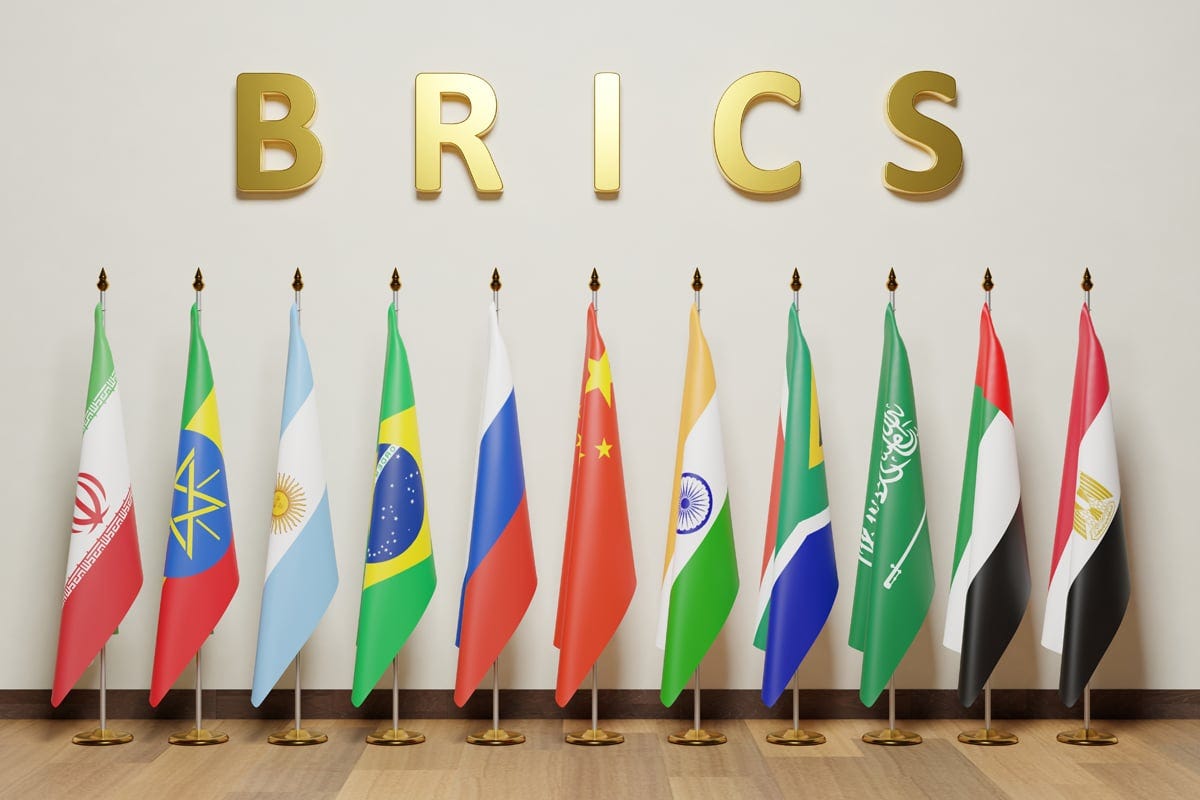It's Time for BRICS Countries to Deepen Agricultural Trade
We all complain about the U.S.'s higher tariffs, but BRICS also has some issues
In the current world of trade fragmentation, one area the BRICS countries should consider focusing on more in their deliberations this year is deepening intra-BRICS trade. For South Africa's agriculture, this has been a central input in various discussions for some time, reflecting our desire to expand export markets to the BRICS countries, as well as the potential that lies in this region.
Currently, South African agricultural exports to the BRICS remain relatively low (at less than 10% of our agricultural exports to the world, which are US$13.7 billion as of 2024). The BRICS group is not a trade bloc, which partly explains our low agricultural penetration.
However, this may be an opportune time to change this reality and explore a more ambitious agricultural trade arrangement that aims to address the low intra-trade challenge in agriculture within this grouping.
What has proven to be a constraint in the past is not the low demand, but rather the relatively high import tariffs and some non-tariff barriers (phytosanitary barriers) within this group, which continue to distort agricultural trade.
The BRICS countries represent a substantial agricultural market, with annual imports exceeding US$300 billion. China and India are the major importers. The key agricultural products that the BRICS grouping imports include soybeans, palm oil, beef, maize, berries, wheat, cotton, poultry, pork, apricots, peaches, sorghum, rice, and sugar.
These are products that are produced at scale by some BRICS countries. Yet, the imports to other BRICS members typically originate from suppliers outside the grouping due to higher tariffs and phytosanitary barriers, among other issues.
China and India, amongst other countries, are of particular interest to South Africa for expanding agricultural exports. This is because they account for sizable agricultural import volumes, have growing populations, stable economies, and evolving consumer tastes.
South African policymakers' engagements with their BRICS counterparts in Brazil over the coming week should include discussions on agricultural matters, with a particular emphasis on advocating for lower tariffs for specific products and addressing non-tariff barriers.
We all complain about the U.S.'s higher tariffs, but China has some issues as well. Consider the wine trade in China – countries like Australia and Chile have accessed the Chinese market with 0% preferential tariffs. Meanwhile, South African producers face 14% import tariffs.
Of course, the main challenge is that we do not have an agricultural trade agreement with China. Hence, competition has been challenging for the wine industry and a range of farm products.
But it is for this very reason that I believe it is appropriate for BRICS countries to explore a possible agricultural trade agreement.
To me, trade conversations make more sense than the discussions of a "Grain Trade Exchange" that Russia is campaigning for. This Exchange, while understandable from a Russian perspective, brings limited value in terms of deepening trade, where the challenge remains tariffs rather than platforms. What Russia proposes will not fundamentally benefit all countries, but may ease financial flows, given the unique issues Russia faces since the start of the Black Sea War.
However, BRICS requires endurance and a long-term vision. For agriculture, this endurance and long-term vision can only exist if the underlying economics also support the interests of various businesses from the member countries. Those business interests would be better served if there were better and more favourable ways of trade within this bloc. Thus, I am of the view that the political conversations at BRICS should address this matter, among other significant themes.
I must also caution that my insistence on BRICS matters is not an attempt to diminish the trade and relationship we enjoy with the likes of the EU, Africa, the broader Asia and the Middle East, and the Americas. These remain valuable trading partners for our agricultural sector.
Our focus on BRICS agricultural trade opportunities is not to replace them, but to diversify export markets and enhance global competitiveness. Other strategic export markets for South Africa's agricultural sector include South Korea, Japan, Vietnam, Taiwan, Mexico, the Philippines, and Bangladesh.
This is an opportune time for BRICS to engage in an ambitious agricultural trade conversation that benefits all members.





